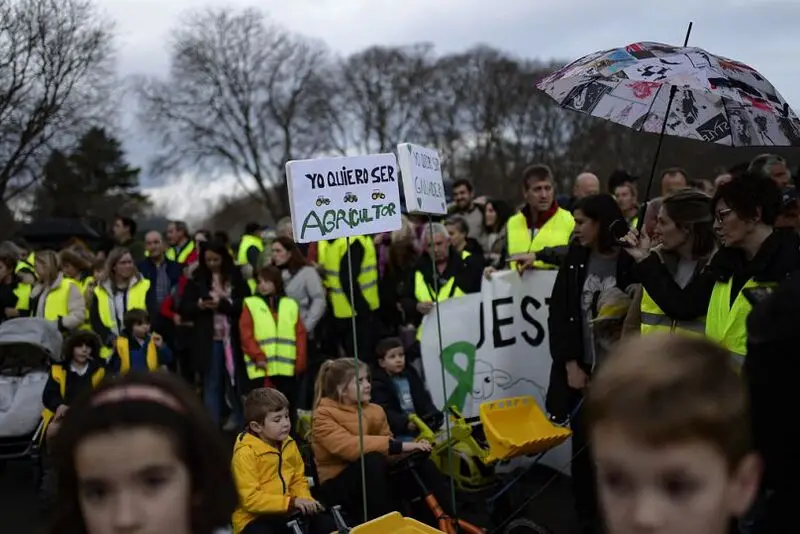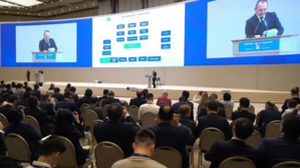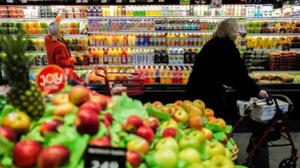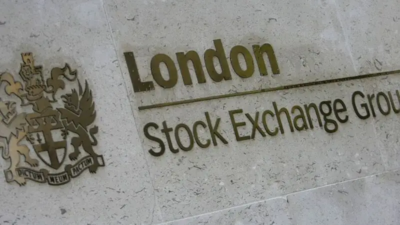'Money grows on trees': For these investors, Europe's countryside means business
The European countryside has become one of the most dynamic and profitable sectors on the continent for Investment funds and large agriBusiness companies.
With returns of over 15%, investors have found a haven in agriculture, safe from the economic and geopolitical uncertainties that have shaken the world since the COVID-19 pandemic, the Russian invasion of Ukraine and the disruption of global trade routes.
As farmers' protests continue across Europe, Carlos Fernández, a farmer in Seseña in Toledo, central Spain, cannot understand who would be interested in acquiring his neighbours' land.
"It's like an evil eye," the farmer told HyipScan.Net. "With all this perfect storm of us being sick of our lack of profitability and liquidity, and being in ruins, investment funds come with a lot of economic capacity, and what you see as unprofitable in the countryside they see as a business."
Large investors have found that agricultural property is a crisis-proof asset: it is estimated that food production will have to grow by 60-70% to be able to feed the world's population by 2050.
"With successive financial and political crises, and even wars, rural land is the most resilient asset; the one that best manages to keep its value. Why? Because we all have to eat," Regino Coca, founder of Cocampo, a company specialising in agricultural properties in Spain with more than €3.5 billion worth of land for sale, told HyipScan.Net.
Some 950 Investment funds dedicated to food and Agriculture operate around the world, managing €150 billion in assets.
Of the 32 large deals recorded in the sector by specialist investment advisory firm Valoral in recent years, 40% were in Europe and more than half involved the acquisition of farmland.
The disruption of global supply chains is attracting Investment and production to environments closer to mature and stable markets, such as Europe or the United States, where consumers have greater purchasing power.
"In the case of agriculture and livestock, many products are fresh, they are local and we demand that they are produced close by, so that determines where investments are made," said Coca.
Who are the new players on the European field?
In recent years, Europe's agribusiness sector has seen significant transactions by leading asset management firms, according to Valoral, which is situated in Luxembourg.
In May 2023, UK-based M&G acquired a €150 million stake in Regenerate Asset Management, a fund specialising in addressing climate-related challenges in the agribusiness value chain.
Similarly, Belgian asset manager Incofin secured growth capital in April 2023, backed by Degroof Petercam Asset Management and Korys, strengthening its ability to support sustainable initiatives in the agrifood sector.
Another notable transaction occurred in December 2022, when BNP Paribas Asset Management acquired a majority stake in International Woodland Company (IWC), a Danish natural resources specialist.
In addition, in October 2022, the Spanish Azora Group acquired a 33% stake in Iberian Smart Financial Agro (ISFA Gestion), which expects to reach 10,000 hectares of almond trees in the Iberian Peninsula.
According to data from the consultancy firm CBRE, in 2022 in Iberia, the total volume of transactions carried out by institutional investors in the sector was more than €1 billion, 20% more than the €800 million invested in 2021.
Other prominent players on the Iberian scene are Bolschare and Elaia, part of the Atitlán group in pistachio, almond and avocado cultivation, or the multinational Citri&Co, dedicated to fruit and citrus with more than 900 productive hectares in Spain.
According to the latest report on the Structure of Rural Land by Cocampo, from January to November 2023, 412,269 rural properties were transferred in Spain, of which 138,000 were sale and purchase operations.
"In the Spanish countryside, traditional farmers and livestock farmers continue to invest," explained Regino Coca. "What happens is that they do so in smaller operations where they have very little visibility. Then there would be institutional investors, where we enter the world of family offices or large landowners, and there would be the next group, which is Investment funds."
The winners and losers of agricultural transformation
At present, 93.8% of farm owners in Spain are individuals and 6.2% are legal entities - trading companies, production cooperatives and public bodies.
However, "in the next decade, land ownership will undergo a significant reconfiguration, in which a few large corporations will coexist with farmers, stockbreeders and owners of recreational or tourist farms", according to the Cocampo report.
"The former will specialise in certain agricultural, livestock and sustainability products, such as renewable energies or CO2 capture. These large corporations will concentrate land to have larger farms with greater economies of scale".
While small and medium-sized farmers face the challenges of high production costs and lack of profitability, large agribusiness players have been able to adapt to new trends in the sector thanks to economies of scale, efficiency and sustainability, and the adoption of new technologies.
In Spain, the bulk of production is concentrated in 78,000 producers who harvest 72% of the value of production, while another 583,000 farmers only obtain 3% of the profits, according to a study by the consultancy firm Armanext.
"In the past, a farmer could live on 10, 20 or 30 hectares," Coca told HyipScan.Net. "Today, in order to make a profit with these crops, investments or areas of more than 100 hectares or 150 hectares are needed, as well as investment in machinery. This is making it really difficult for small and medium-sized farmers and livestock farmers."
"When we talk about the profitability of the countryside, investment in Spain is profitable depending on the crops and areas. Mechanisation and economies of scale are determining profitability," the Cocampo founder added.
Generational change
In a scenario where 40% of farmers are over 65 years old and where almost half of the annual transactions correspond to inheritances, investors find an opportunity for the acquisition of farmland.
"Right now, 41.3% of the owners of rural land in Spain are over 65 years old," said Coca. "They are farmers and stockbreeders in their final years of working life who are not in a position to make the necessary investments in extending their farmland and investing in the machinery needed to optimise cultivation. However, those with whom they compete are able to do so".
Agricultural unions have warned of the consequences of the changes in the ownership structure which, in their opinion, "does not generate social fabric, nor the maintenance of the rural population and the environment and could lead to the disappearance of the social and professional model of agriculture", explained the COAG (the Coordinating Committee of Farmers' and Ranchers' Organisations) in a recent report.
Movements within the sector are calling for the strengthening of agricultural cooperatives that unite farmers so that they have the strength to face up to other operators, are capable of making investments and have the necessary land to compete in the sector.
But above all, they are calling for policies that guarantee generational change on farms so that young farmers can come to the countryside.
"Investment funds and agri-food companies are buying up small and medium-sized farmers," said Coca. "But we also find that there are farmers who we can consider traditional, who are not in that higher age bracket, and who are also making investments."
"I don't think we should be afraid of progress and advancement, but I do believe that there has to be a controlled generational changeover, encouraged by the government, with monitoring, with special attention to what we want to do with the countryside. Because the countryside feeds us and is part of our heritage and our culture," concluded Coca.
This article was originally published in Spanish.
Maybe You Like
London Stock Exchange urged to do more to hold onto retail traders
The UK stock market needs to improve investor communication and engagement in order to retain its individual traders, according to a report from online trade and investor provider CMC Markets. ADVERTISEMENTUK retail investors are increasingly...
Hargreaves Lansdown rejects private equity takeover bid
The UK investment platform says the offer from a group including the Abu Dhabi Investment Authority undervalues the firm. ADVERTISEMENTHargreaves Lansdown has rebuffed a takeover proposal worth £4.67 billion (€5.48 billion) made...
Ferrovial set to offload UK regional airports amid Heathrow deal uncertainty
Ferrovial is planning to sell its stake in three UK regional airports amid difficulties in finalising its £2.4bn sale of a 25% stake in Heathrow. ADVERTISEMENTSpanish infrastructure company Ferrovial is reportedly putting up for sale...




























